Women and the Trucking Industry
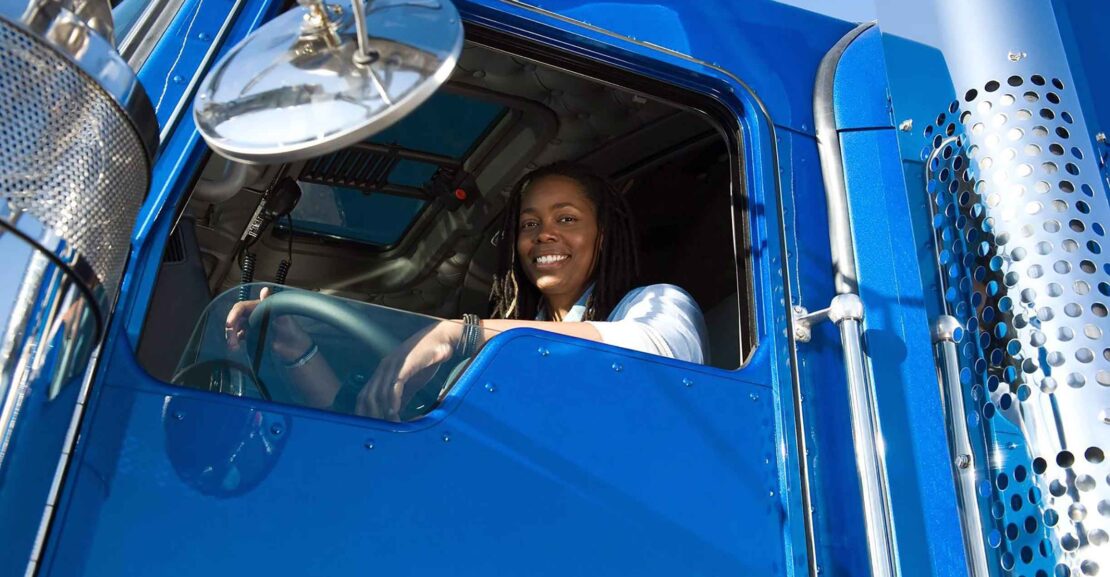
Truckers have heard many exciting announcements this year, but there’s a milestone at the top of the list that some may not have heard yet: the year 2018 marks the 100th-year anniversary of women in the trucking industry.
Encouraging Female Truckers
Although rarely recognized, women have been active members of the freight transportation industry for over a century. RealWomenInTrucking.com is just one website dedicated to telling about the integral role women have played in the trucking industry since its founding.
Real Women in Trucking is actually a non-profit organization founded to help encourage gender equality in the industry and inform people about the hardworking women of past and present who have helped to shape the trucking industry.
At the company-level, SupposeUDrive also works to help support female drivers and gender equality within the transportation industry. In fact, we proudly recognize that SupposeUDrive would not exist today if not for Mildred Johnston and her husband who founded the company in 1936. Ever since, many hardworking women have been critical to our growth and success.
Now more than ever, we are proud to pay homage to the women who helped the trucking industry become what it is today.
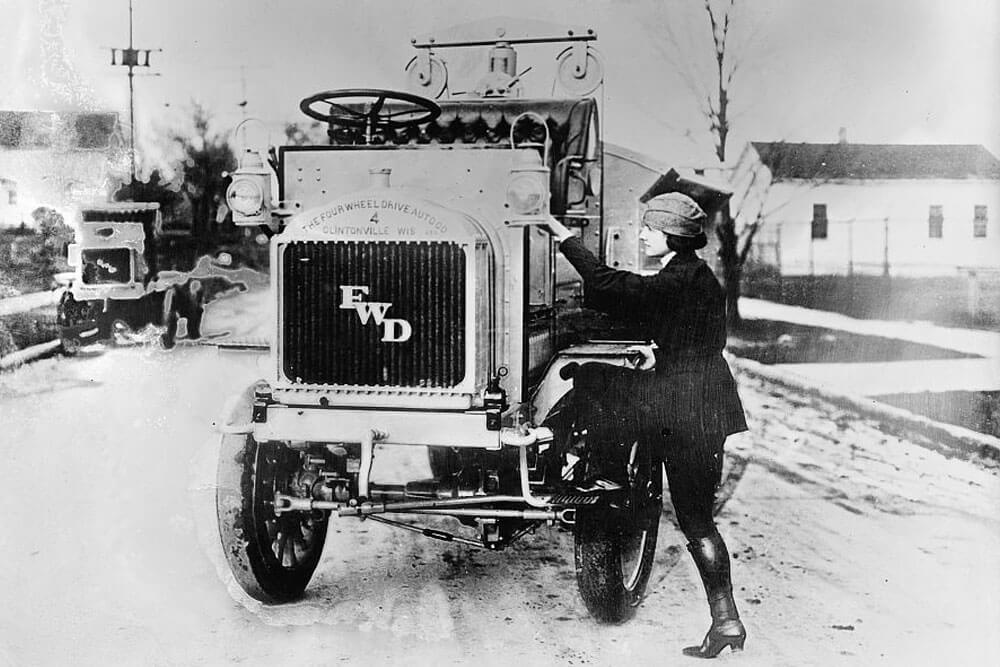
How It All Began
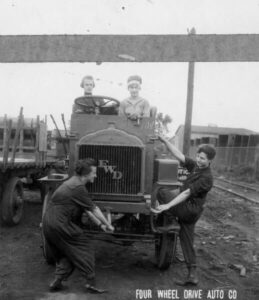
Luella Bates was the earliest woman to get hands-on with trucking. Between 1918 and 1922, she drove a class B truck for the Four Wheel Drive Auto Company in Clintonville, Wisconsin. This made her the very first woman to be licensed as a truck driver.
However, it’s Lillie Elizabeth McGee Drennan who is often credited as being the first licensed female trucker. Shortly after her birth in 1897, Lillie’s parents gave her up for adoption in Texas. She later went to school and had only gained a fifth grade education when she married at 15-years-old and became a mom. Two years later, she was divorced.
Lillie never had a stable or happy home life. She was married and divorced two more times in her life, but it was during her second marriage that she found her calling. She was introduced to the trucking business and eventually became a truck driver herself. Later, she became the sole owner of the Drennan Truck Line.
Unfortunately, Lillie’s struggles were not limited to her family life. She also had a hearing impairment and it threatened her ability to be granted a license by the regularity commission at the time. The Texas State Historical Association documents that Lillie perceived the regulatory commission’s weariness to grant her a license as a sex bias. She was able to successfully argue this case, explaining that her hearing impairment was not a safety risk, and received her commercial driver’s license in 1929.
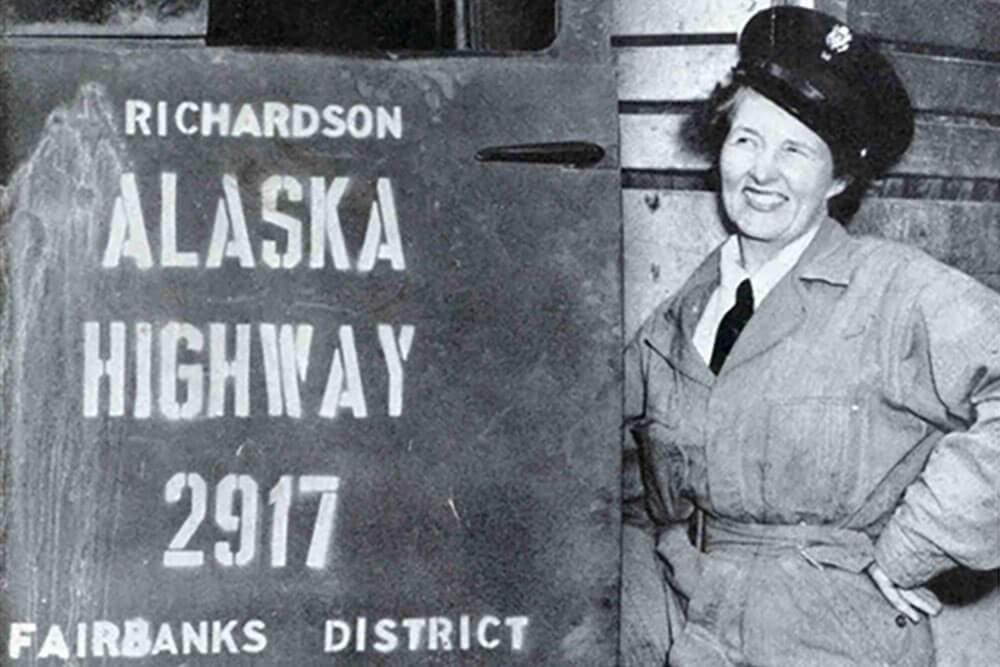
Mid-Century Progress
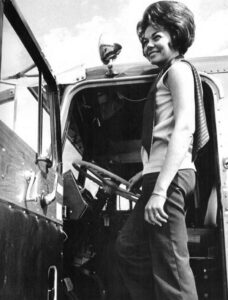
While all of this may sound surprising, it actually was not too uncommon for women to be working as truck drivers throughout history.
During the times of World War II, female truck drivers were very common according to Adriesue “Bitzy” Gomez. Bitzy was a crucial female trucking pioneer, but she has been very much lost in trucking history. Bitzy says that women were often encouraged to take up otherwise male-dominated jobs during the 1940s. After all, war efforts had taken away many men from everyday society and others were having to step up to the plate to keep countries running.
When the war came to an end, however, this encouragement stopped and women were instead pushed back into their pre-war lifestyles, which usually consisted of being a homemaker. This did not last for long, though. During the 1960s, the sexual revolution heated up and equality issues were put onto the table for all to examine. The workplace began to be scrutinized as equal opportunity was pushed to the forefront as a major issue that still remains today.
In the 1970s, the Coalition of Women Truck Drivers was formed. It consisted of 150 members and they worked to fight sexual misconduct at trucking companies, paving the way for modern day recruiting campaigns to help encourage more women to apply in the trucking industry. However, Bitzy is hardly recognized for her feats, although she and the Coalition of Women Truck Drivers played a huge role in moving the industry forward.
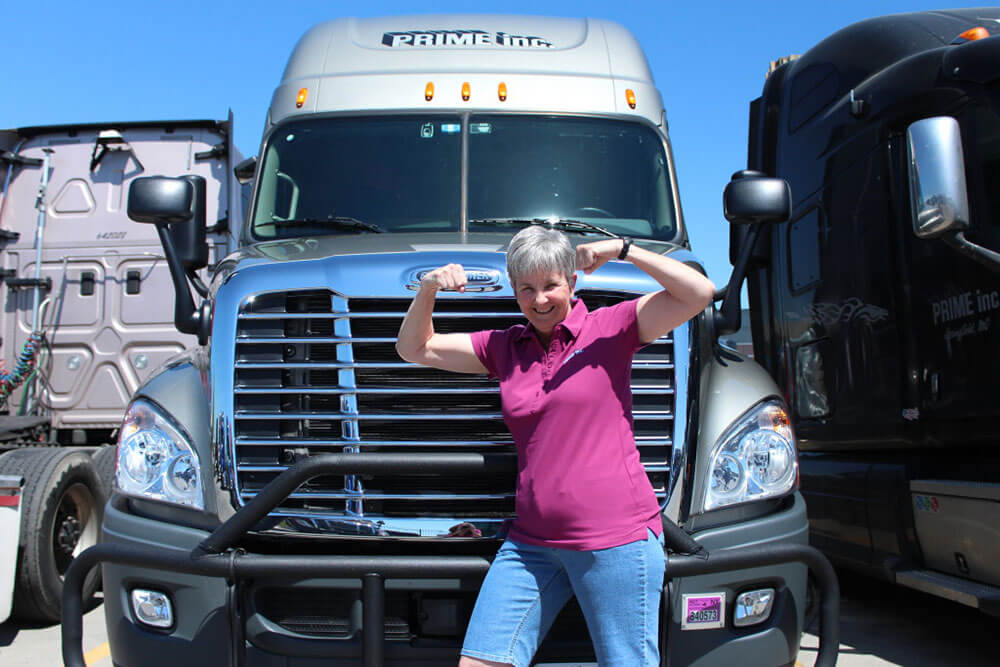
The Industry Today
Today, it is well-recognized that women make excellent professional truck drivers and many companies employ them as their best workers. Women truck drivers are conscientious and devoted just like men, but it’s now being recognized that, without the work of Bitzy and others, women likely wouldn’t have a place in the industry.
Real Women In Trucking recognized through research that past EEOC discrimination cases that courageous women like Bitzy have brought up formed the basis for the hiring mandates that help enable today’s women to pursue any job they want, including one in the male-dominated trucking industry.
Unfortunately, many women entering the trucking industry are still facing issues. That’s why organizations are working to encourage education as an imperative piece of the puzzle for any woman entering into the trucking industry.
Education is important for both new and seasoned female truck drivers to help them realize their rights as an equal opportunity employee. Education will also help women in the workforce learn how to face and overcome issues with sexual misconduct that persists today.
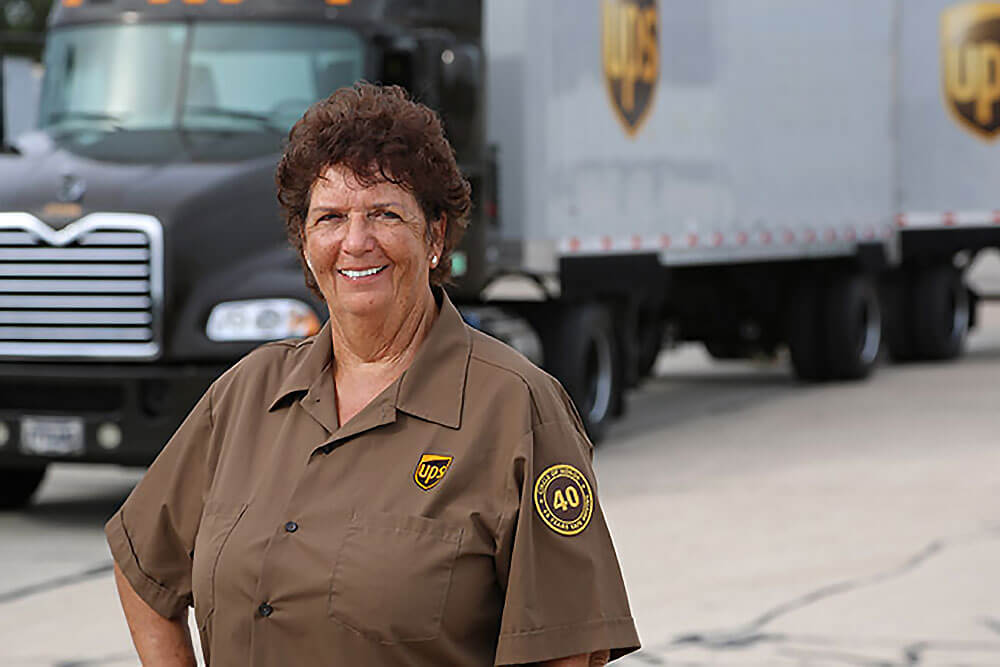
Looking forward
Employer-sponsored education and programs can also help female truckers be encouraged to stay in their jobs and succeed, thus raising retention rates for companies while creating a supportive environment for present and future women looking to join the industry.
Another issue that education and programs can help overcome is the mentality many women take on where they end up pitting themselves against one another. Many women in the industry feel that they have no one to thank and there’s no need to help anyone in the future. They do not realize the great lengths women have gone to in order to secure women’s place in the trucking industry.
Education and outreach programs can help encourage female truckers to continue growing through their careers while also enabling them to become mentors to other women interested in the industry. Additionally, these programs will help promote equality and fair treatment amongst all truckers, making the industry a safer and happier working environment for everyone.
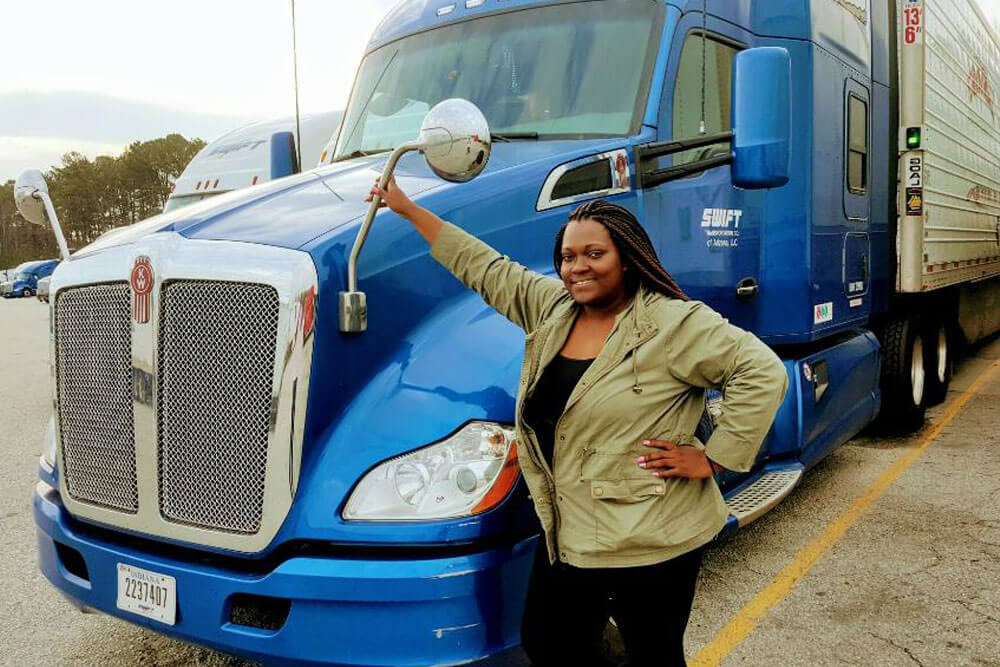
Want more?
Our newsletter shares interested stories, news, and insider information with subscribers. You can join the list here.

